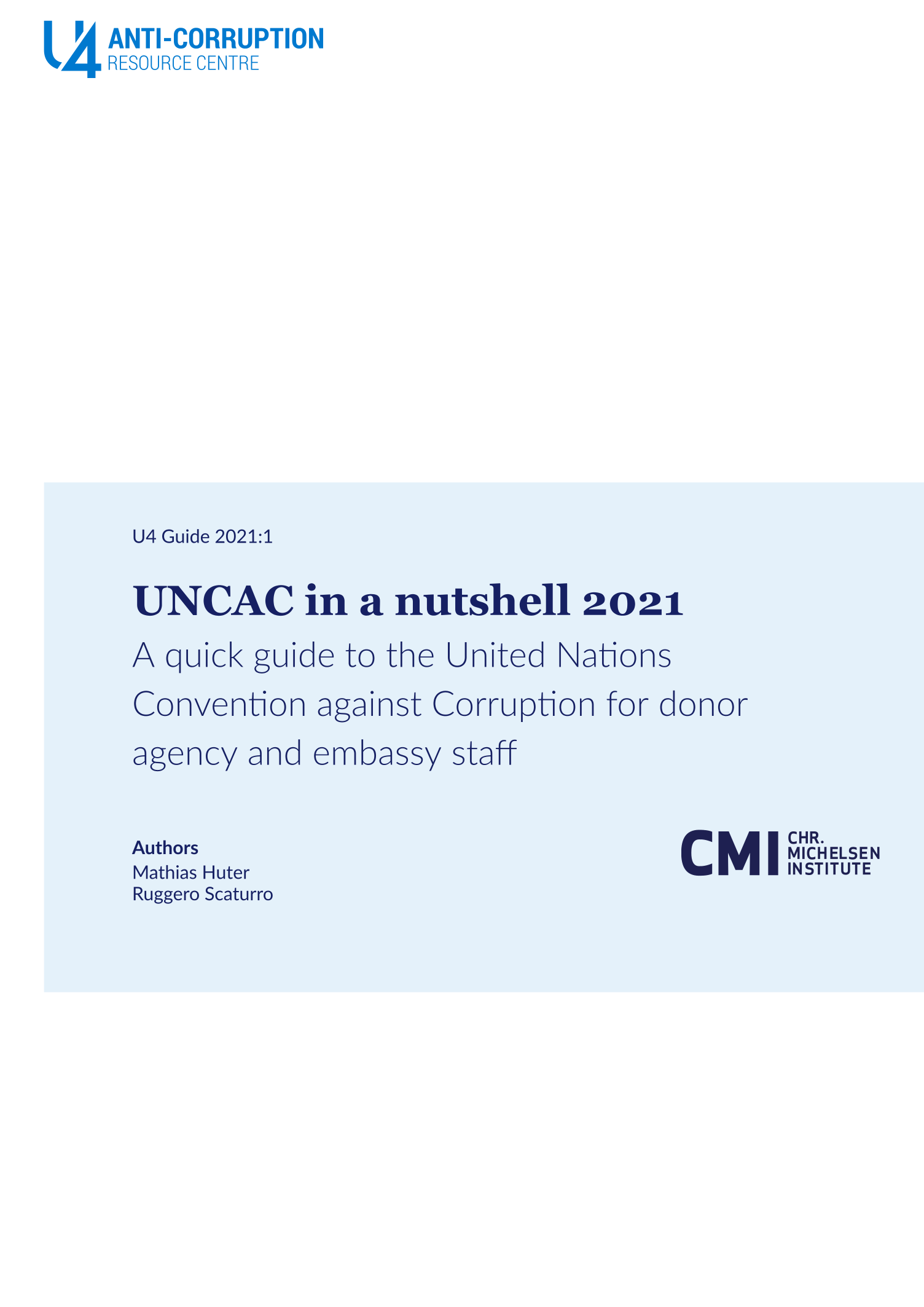Main points
- The UNCAC is the only binding global anti-corruption instrument.
- The ongoing 2nd review cycle evaluates corruption prevention provisions (transparency and accountability) as well as asset recovery. It provides an opportunity to engage partner governments on support and technical assistance and to facilitate the involvement on non-governmental stakeholders in reforms, as well as to lead by example in the domestic review process.
- A transparent and inclusive review process on the national level is crucial for impact. Since many governments do not publish the full review reports, the Convention's minimum standards are insufficient.
- The UNCAC provides synergies with other good governance instruments, including the Open Government Partnership, Sustainable Development Goals, and the Organisation for Economic Co-operation and Development



